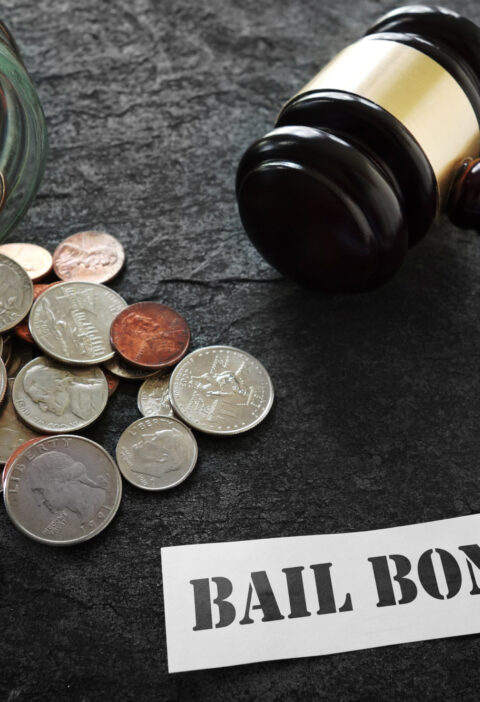Divorce is a difficult but final decision. Getting to that point takes time, effort, and a lot of emotional investment. But once you do, you need to get things in order. And that includes taking care of your children.
Deadbeat parents and those who have expressed a negative attitude toward the interest of their child should not be considered primary physical custody. But if you are interested in getting that, you should know what to do. We are here to help.
Here are the steps you need to follow to get primary custody of your child after a divorce.
Understanding the Laws Regarding Primary Custody
Understanding the laws regarding primary custody can be essential in ensuring a successful custody outcome. Every state has different laws. You must research what your state allows in terms of custody awards.
Depending on the state, acquiring primary physical custody can come down to several factors. This includes which parent can provide the best environment for the child.
Generally, the primary physical custodial parent will have the child most of the time. Meanwhile, the other parent generally gets visitation rights. Factors such as abuse, neglect, and unsafe environments must be considered.
In addition, things such as the parent’s occupation, location, and past behavior can all be considered. Doing research is also beneficial in getting what you need for primary physical custody. This helps you understand the court process and prepares you for any pitfalls that may arise.
Preparing for a Court Hearing
Before appearing in court for a primary physical custody hearing, individuals must do everything they can to prepare for the process. This means that individuals should make sure to gain an understanding of the applicable laws and regulations. They must be informed about what the court will take into consideration.
Additionally, individuals should gather all of the necessary evidence and documents. They need to make sure to be organized and present in a professional manner. It is also essential to remain calm throughout the process and open to compromise.
Gaining Support From Family and Friends
A support system of family and friends can be beneficial when you are trying to gain primary physical custody of your child after a divorce. Yes, the ultimate decision resides with the court. But, having the backing of people close to you can offer emotional strength during a trying time.
Reach out to family and friends to discuss your situation and why you believe you should have primary physical custody. Make sure to keep these people informed throughout the process. Support and understanding can help you remain focused.
Ask your family and friends to attend court sessions and speak on behalf of your case. Sharing stories of why you should have primary physical custody may carry additional weight when coming from another person. Most importantly, having a strong support system behind you can make the custody battle less daunting.
Developing an Argument for Your Custody Case
Firstly, you must think about everything that will make your case as strong as possible. Gather as much evidence as possible to support your argument regarding your parenting style, lifestyle, and ability to care and provide for your child.
Document all communication between you and your ex-spouse. Include all pertinent legal evidence of your financial stability, emotional health, and ability to interact with your child and provide for them.
Secondly, create a parenting plan that outlines a shared schedule, if applicable. We’ll discuss more about this in the next section.
Establishing a Detailed Parenting Plan
Start by creating a draft of the parenting plan that will work well for the family. Establish a fair and equal custody plan for the child and document it in writing. It’s important to outline the following details:
- communication expectations
- parenting time
- parenting decisions
- how emergencies will be handled
Establish a plan that is in the best interests of the child and covers appropriate locations and times for custody transfer. Additionally, it is essential to document the financial responsibilities of both parents.
Once this is done, review the plan with an attorney or mediator for assistance in finalizing the plan. When it is complete, present the parenting plan to the other parent, discussing it in detail while exploring any potential adjustments in the child’s interest.
Anticipating Potential Challenges in Reaching a Settlement
One of the primary challenges in securing primary physical custody of your child after a divorce is reaching a settlement. This is not always easy, as there are many factors to consider.
These challenges may come in the form of evidence gathering. There can also be disputes with the co-parent on matters such as visitation schedules and decisions about the child’s upbringing. That’s why a parent should keep an open mind and be well-prepared for negotiations.
Working with a Custody Lawyer
When getting primary physical custody of your child after a divorce, it is essential to work with a qualified custody lawyer. They will help you understand the necessary laws and regulations and ensure your rights are represented correctly. They are also crucial for building a case that proves you are the best parent for your child.
Divorce lawyers can review existing agreements to ensure they are fair and balanced and work with you to resolve if the other parent does not follow the agreed-upon arrangement.
A custody lawyer can also provide legal advice and assistance with filing the necessary paperwork properly. With the help of a knowledgeable custody lawyer, you can get closer to achieving primary physical custody of your child after a divorce.
This Is How You Get Primary Physical Custody Of Your Child After Divorce
After getting divorced, primary physical custody of your child should be your priority. Seek legal counsel in your state and know the rights of the parent you are seeking physical custody from. With the right legal resources and guidance, you can secure primary physical custody of your child. Get the advice and help you need now from a reputable family attorney.
Read through the other posts on our website and learn more about topics that you’re interested in.







